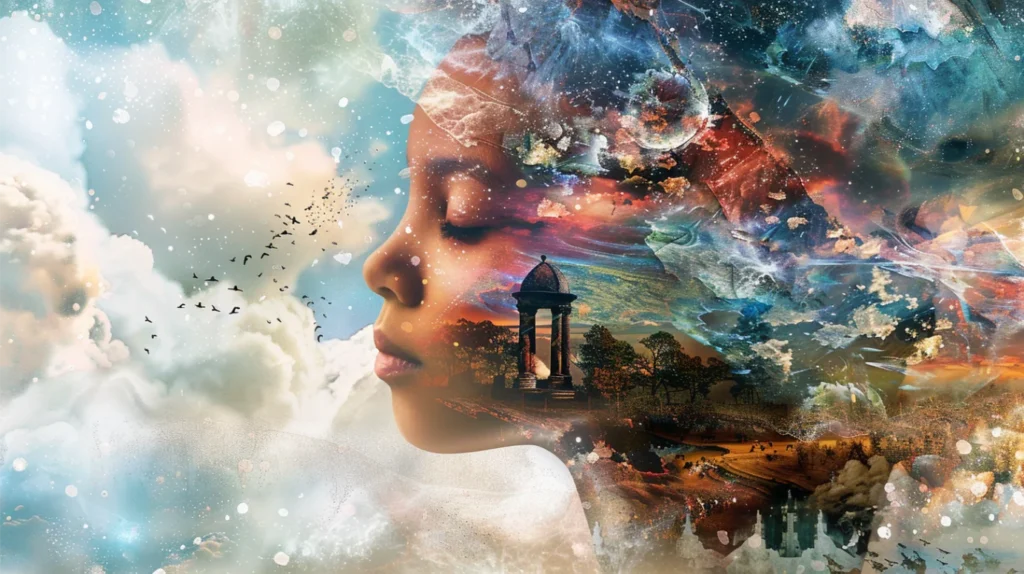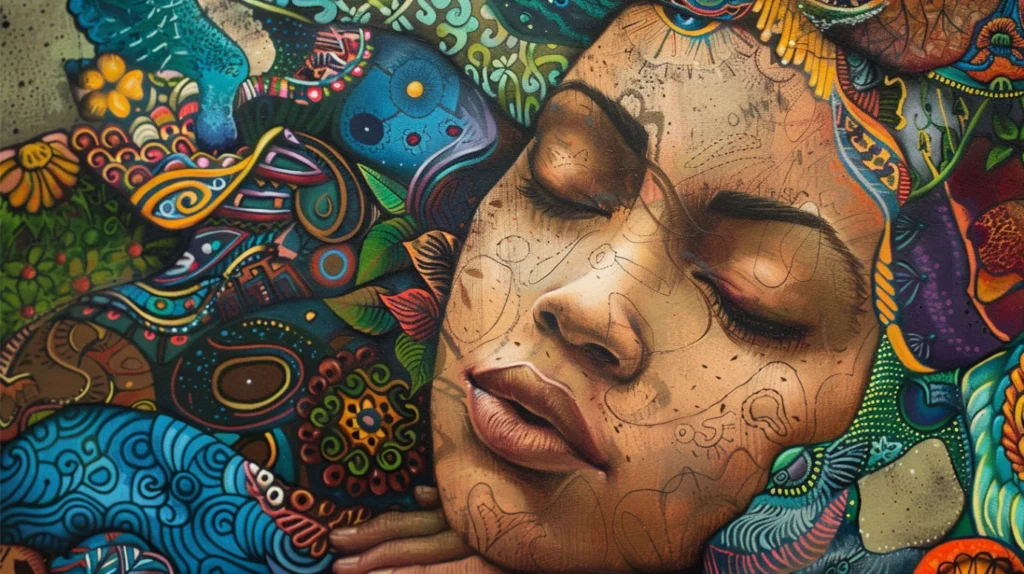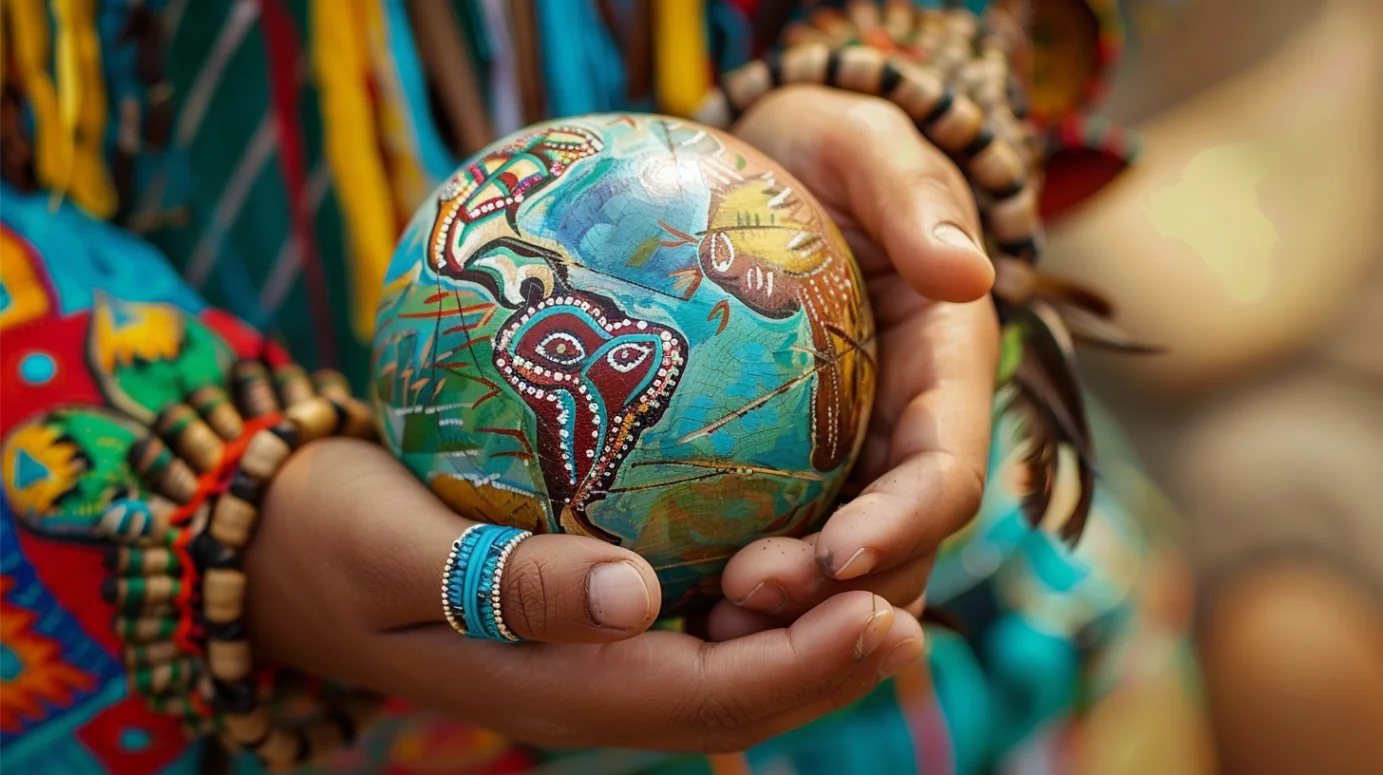Dreams have fascinated humans since the dawn of time. They are a universal experience, transcending borders, languages, and cultures. While the content of dreams may vary from person to person, the act of dreaming is a shared human experience. In this blog post, we’ll explore how different cultures around the world perceive, interpret, and celebrate dreams.
The Significance of Dreams
Dreams have held significant importance in various cultures throughout history. Some key reasons why dreams are considered important include:
- Spiritual and Religious Significance: Many cultures believe that dreams are messages from gods, ancestors, or spiritual realms. They are seen as a way to connect with the divine and receive guidance or warnings.
- Psychological Insight: Dreams are often viewed as a window into the unconscious mind. They can reveal hidden desires, fears, and emotional states, providing valuable self-knowledge and personal growth opportunities.
- Problem-Solving and Creativity: Some cultures believe that dreams can offer solutions to problems or inspire creative ideas. Many famous inventors, artists, and scientists have credited their dreams for their groundbreaking discoveries and creations.
- Precognition and Prophecy: In certain cultures, dreams are believed to have predictive powers. They are seen as glimpses into the future or warnings of upcoming events.
Dream Interpretation Across Cultures

The way dreams are interpreted varies greatly across different cultures hiddensignificance.com. Let’s explore some fascinating examples:
Native American Dream Beliefs
In many Native American cultures, dreams are considered sacred and are an integral part of their spiritual practices. Some common beliefs include:
- Dreams are a way to communicate with the spirit world and receive guidance from ancestors or animal spirits.
- Recurring dreams are particularly significant and may contain important messages or warnings.
- Dream catchers, a popular Native American craft, are believed to filter out bad dreams and allow only good dreams to pass through.
Ancient Egyptian Dream Beliefs
The ancient Egyptians placed great importance on dreams and even had dream interpreters as respected members of society. Some interesting beliefs include:
- Dreams were seen as messages from the gods, particularly the god Bes, who was associated with dreams and protection.
- The Egyptians believed that the soul left the body during sleep and journeyed into the dream world.
- Dream interpretation was a sophisticated practice, with dream symbols and their meanings meticulously recorded in dream books.
Chinese Dream Beliefs
In Chinese culture, dreams are often linked to the concept of yin and yang, the balance of opposite forces. Some notable beliefs include:
- Dreams are believed to be a way for the soul to travel and experience different realms.
- Nightmares are often seen as a sign of imbalance in one’s life or a warning of potential misfortune.
- The Chinese believe that certain foods, such as spicy or heavy meals, can influence the content of dreams.
Islamic Dream Beliefs
In Islamic tradition, dreams hold a special place and are considered a form of divine communication. Some key beliefs include:
- Dreams are divided into three categories: true dreams (from Allah), false dreams (from the devil), and meaningless dreams (from the subconscious).
- Prophetic dreams are highly revered, and many Islamic figures, including Prophet Muhammad, were known for their significant dreams.
- Dream interpretation is an important practice in Islamic culture, with many scholars dedicating their lives to studying and interpreting dreams.
Celebrating Dreams

Across the world, various cultures celebrate and honor dreams through unique rituals, festivals, and practices. Here are a few interesting examples:
- Dream Festivals: In some Native American cultures, dream festivals are held to share and interpret dreams within the community. People gather to recount their dreams and seek guidance from elders or spiritual leaders.
- Dream Pilgrimages: In certain African traditions, people undertake pilgrimages to sacred sites or consult with dream diviners to seek interpretation and guidance for their dreams.
- Dream Journals: Keeping a dream journal is a common practice in many cultures. It allows individuals to record, reflect upon, and analyze their dreams for personal insight and growth.
- Dreamwork Practices: Various cultures have developed specific practices to enhance dream recall, induce lucid dreaming, or facilitate spiritual experiences through dreams. These practices may include meditation, rituals, or the use of certain herbs or crystals.
The Role of Dreams in Modern Society
In contemporary times, dreams continue to hold a significant place in our lives. While traditional cultural beliefs may have evolved, the fascination with dreams remains strong. Modern dream research has shed light on the scientific understanding of dreams, exploring topics such as:
- Dream Psychology: Psychologists and researchers study dreams to gain insights into the workings of the human mind, including memory consolidation, emotional processing, and problem-solving abilities.
- Dream Therapy: Some therapists use dream analysis as a tool in psychotherapy to help clients explore their subconscious thoughts, emotions, and experiences.
- Dream Technology: With advancements in technology, researchers are developing new tools to study dreams, such as wearable devices that can track and record dream activity.
- Dream Art and Media: Dreams continue to inspire creative expressions in various forms of art, literature, film, and music, captivating audiences with their surreal and imaginative qualities.
Conclusion
Dreams are a universal human experience that have captivated people across cultures and throughout history. From ancient civilizations to modern societies, dreams have been revered, interpreted, and celebrated in diverse ways. Whether seen as spiritual messages, psychological insights, or creative inspirations, dreams continue to hold a special place in our lives.
By exploring dreams across cultures, we gain a deeper appreciation for the richness and diversity of human experiences. We discover that despite our differences, we are all connected by the shared wonder and mystery of the dream world. So the next time you drift off to sleep, remember that you are participating in a timeless and global phenomenon – the fascinating world of dreams.

